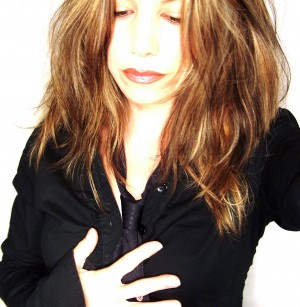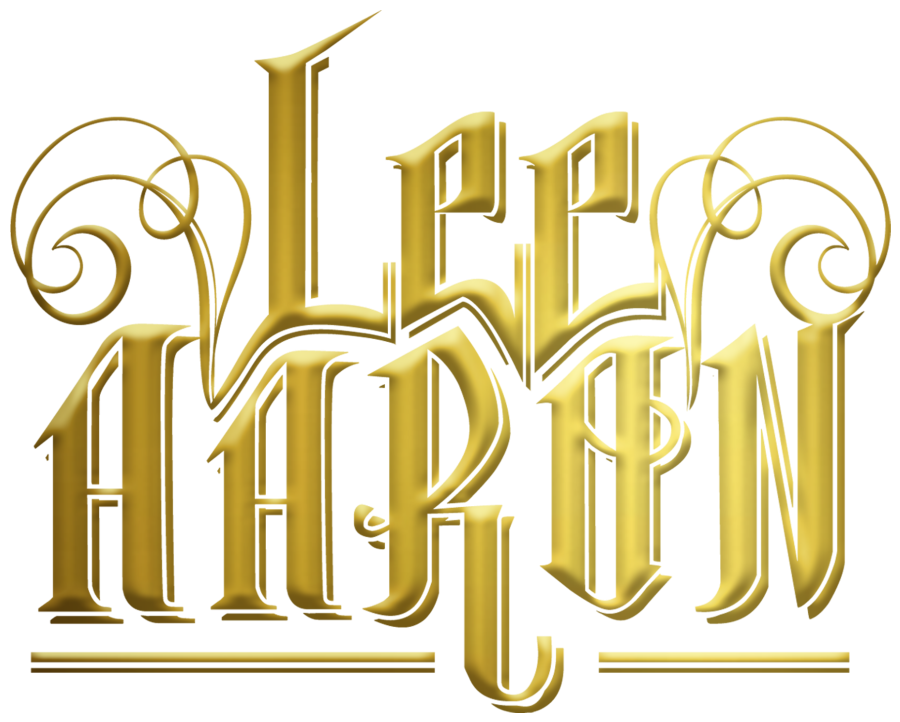
 Lee Aaron: From Metal Queen To Jazz Goddess
Lee Aaron: From Metal Queen To Jazz Goddess
“A mini Stonehenge will drop down halfway through the set when we remove our wizard capes to reveal the – just kidding” Lee Aaron jokes about her upcoming Alberta performances.
And I have to smile at the throwback, because the first thing that pops into my head is a leather clad Aaron brandishing a sword in the video for “Metal Queen” [1984, Attic], the hit song off her album of the same name, the one that launched the Canadian songstress into the rock history books and forever cemented her with the throne.
Now, for those who don’t remember, a couple of guys in wizard capes invade the screen with chains. There’s a snake, there’s a big-assed tarantula that makes me shudder to this very day, and all the other cheesy goodness you’d expect from a music video of that decade.
The award-winning songwriter’s musical journey has undergone an impressive evolution since her “Metal Queen” days, and it’s a path she’s had to etch out herself, one album at a time, and one that eventually led her to the world of jazz.
“By late ‘95, I felt as though I’d been fairly much discarded by the industry. The grunge movement had displaced everyone even remotely associated with corporate rock, and I was in that category. My manager and lawyer – whom I’d worked with for 12 years – just shifted gears and moved on,” she says, adding that bankruptcy and depression resulted in her taking a year-long hiatus from music in 1996 to re-evaluate.
During that time, she took comfort in the old jazz recordings in her music collection. When a friend suggested she should be singing it instead of listening to it, she felt inspired.
“I started doing jazz in small clubs in the Vancouver area, simply because I missed music and I wasn’t prepared to jump onto the pop-culture bandwagon again. You can’t win at that game, because there is always a 19-year-old wonder kid waiting around the corner to kick your ass.”
Turns out that not only did she love jazz, she’s pretty darn good at it, too.
Aaron has since released two jazz albums, “Slick Chick” [2000, Barking Dog] and “Beautiful Things” [2004, Faithful] and takes a set of hit rock songs and her jazzier favourites out on the road with her when she tours.
“I usually do it. And re-do it. A few times,” she says on what goes into planning her shows. “There is always someone in the audience disappointed because they didn’t hear their favourite song, but it’s hard to make everyone happy when you have 12 CDs worth of material.”
In spite of a large catalogue to choose from, how do you keep performances fresh and exciting for yourself?
I play live less these days, which helps a lot. I toured “Body Rock” [1989, Attic] for 14 months straight, and believe me when I say I started to dislike a lot of those songs. It’s almost impossible to keep it fresh under those circumstances. These days, I try to change up the set every few months, and sometimes surprise the audience with an original song that’s brand new.
How has touring evolved for you?
It’s easier and harder. Easier because I don’t tour for months on end, living out of a bus with an endless radio and press schedule during the day and shows at night. That life, while romanticized as being very glamorous, is very hard. Emotionally and physically. These days, I will only go away for a maximum of five shows at a time. However, I miss my children terribly and it’s tough on them, so in that way it’s harder. Bringing them on tour is disruptive and something I choose not to do. I want them to have a normal life.
How do you balance a music career and being a full-time mum of two?
Something inevitably suffers. Usually, the amount of hours I get to sleep.
Singers like Billie Holiday, Ella Fitzgerald, Nina Simone – what impact did they have on you when you were growing up, and what was it about their voices and energy that really inspired and helped shape you as an artist?
Ella had an absolute purity to her tone and pitch that was unparalleled. Billie and Nina both had edge and soul, but all three had a signature sound to their voice that was instantly recognizable. I think what I took away from listening to them was a real desire to be honest and original sounding. Unfortunately, the ’80s was not an incredibly original time for music, and the record industry worked against that. Hey, if you had big hair, big b**bs, and could sing, they could sell you. Thank goodness I wrote my own songs.
It turned out to be a great move career-wise, but even better as an artist. How much fun was it to break out of the box you’d been in?
I discovered the world of improvising, which was incredibly inspiring. Jazz songs aren’t sung or played the same way twice. Ever. It opened up a whole new world for me creatively.
Did you find yourself suddenly more creative and the ideas more easily accessible?
Jazz songwriting flies in the face of traditional pop song form, so it broke down a lot of self-imposed barriers for me. It made me approach songwriting differently. It also helped me approach things more simply.
Your musical evolution has included more than just hard rock and jazz. Was this experimentation intentional, or were you just writing what felt like coming out at the time?
For “Beautiful Things,” I really tried to not “edit” myself and let the ideas flow. Essentially, I think I’m a pop songwriter. Even my old rock/metal tunes had melody and hooks. Not being with a major label anymore, there is the freedom to be more experimental with the instrumentation and production, which is nice.
Have you had a similar songwriting process throughout your career, or has evolved along with the music?
For 11 years, I wrote most of my songs with John Albani, my guitarist at that time. Sometimes, he would have a couple of parts that worked together and I would build melody and lyrics onto that. Sometimes, I would have a chorus idea, lyric and melody, and he would try to structure the music around that. These days, because I’m writing on my own, most of the ideas are sung into a little hand-held digital recorder. Later, when no one’s tugging at my leg yelling “mommy,” I sneak downstairs to the piano – if I’m not too tired – and flesh out the music, write down the chords and give it a working title like, “Hey, Are You Gonna Eat That?” I have two albums worth of nearly finished material right now that will get finished when my little ones are in school full-time.
Are you still thinking of writing an autobiography?
Yes, it is a work in progress. Motherhood is my biggest impairment to getting things done quickly these days, but being a “Hands-On” (no pun intended) mum is extremely important to me. Nothing is really more important than helping shape the hearts and souls of little humans. With that said, one can look forward to much name dropping, gritty details, personal asides and soul baring honesty. Like my blogs. Only more compelling, hopefully. Probably the most interesting thing about my personal story is that it’s not really about music, it’s about working things out. But isn’t everybody’s?
As an inspirational example of how an artist can break past stereotypes and forge their own path, what advice could you give to other musicians who want to experiment with their sound but are perhaps unsure?
It’s important to know what moves you, but don’t try to model yourself after any other artist. Be yourself, even if it takes you a while to figure that out. Be transparent. Be brave. Take chances, even if someone tells you it’s a stupid idea. Some of my stupidest ideas have been my best.
© Copyright Pitch Black
